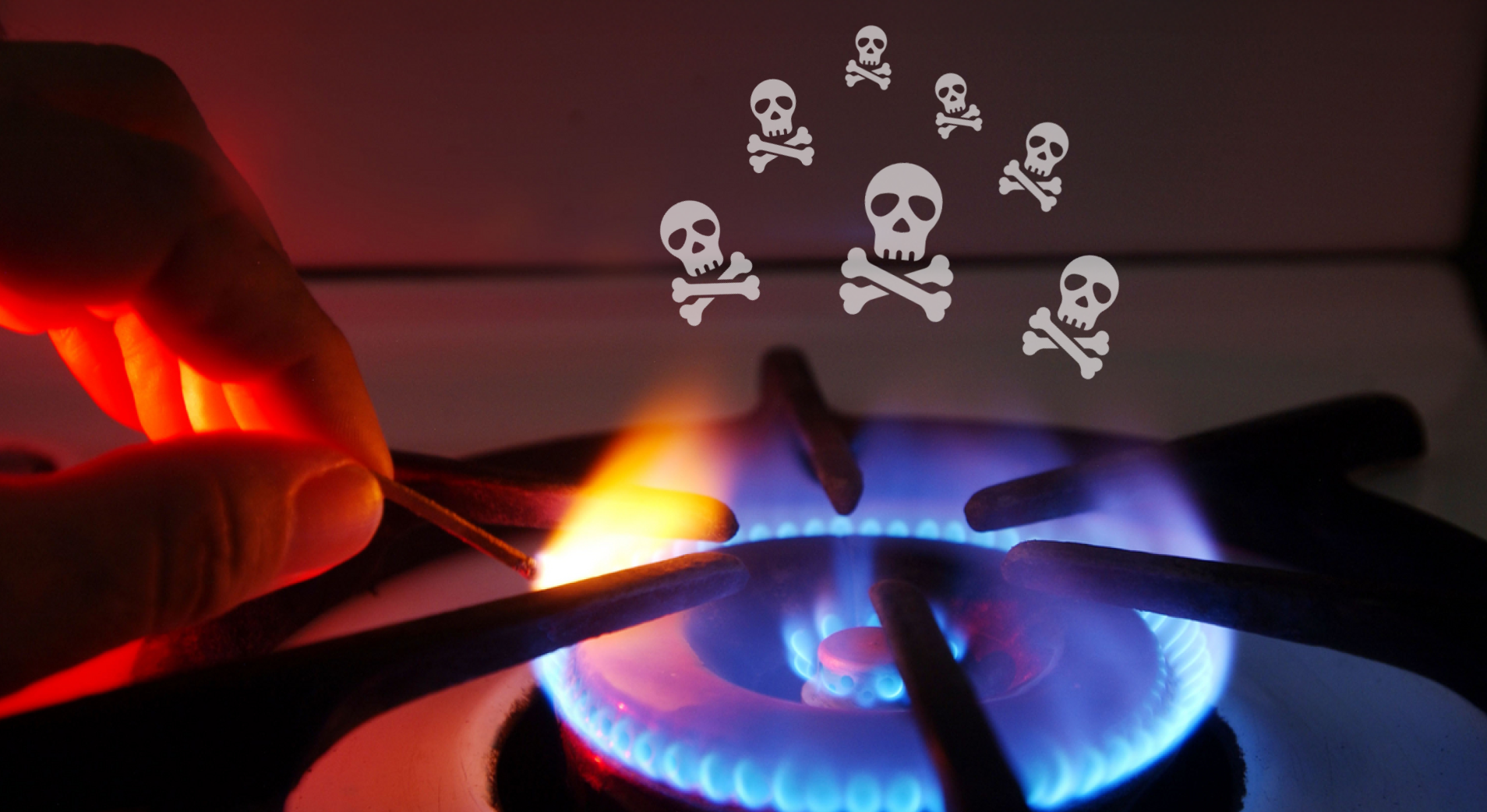Cancer. Asthma. Natural gas. The words seared into my mind like a branding iron as I listened to Jules Moratti-Greene, a retired nurse practitioner.
“People need to know,” she said. “Gas stoves can be worse than secondhand cigarette smoke.”
“Yikes, I didn’t know that,” I admitted, thinking of the gas stove in my own home. “I’ll send you a couple articles,” Jules offered kindly.
The articles were published in two of the most highly respected scientific journals in the world: Science and Environmental Science & Technology. Stanford University did the research, and their summary statements made my jaw drop:
A single gas cooktop burner on high or a gas oven set to 350 degrees Fahrenheit can raise indoor levels of the carcinogen benzene above those in secondhand tobacco smoke.
Gas and propane stoves increase exposure to nitrogen dioxide, a pollutant linked to childhood asthma. Even in bedrooms far from kitchens, concentrations frequently exceed health limits for hours after burners and ovens are turned off.
People need to know. That’s why I have been working with Jules and others to create StopGas.org and to organize a presentation tour across eastern and central Oregon.
I met Jules when my employer Ecumenical Ministries of Oregon (EMO) gave me the opportunity to participate in the Stop NW Gas Expansion Coalition. The coalition’s mission is to protect communities in Idaho, Oregon and Washington from the health, safety and climate threats of methane gas.
Jules is a coalition member and so is EMO. As a statewide association of churches and interfaith partners, EMO stands by a set of shared principles. They include human rights and environmental stewardship that, taken together, affirm everyone has the right to a safe and healthy environment.
With any right there is also responsibility. That was on my mind as I faced off with the gas stove in my kitchen. It stood strong in its central location, like a metal altar, and I admired its power. With the turn of a knob, it made fire—an ancient friend of humankind that brings a sense of security and comfort. How could it be such a danger to us?
Because the gas that makes it work is toxic. It threatens my family with cancer and asthma, in addition to methane and carbon monoxide poisoning. Then there is the fact that methane is a potent greenhouse gas that is superheating the planet, our only home in the universe. For my family’s sake, and for God’s sake, the gas stove had to go.
I researched pollution-free electric stoves and found several within our budget. Unfortunately, when I pulled the gas stove away from the wall, I found only a standard 110-volt outlet, not the 220-volt outlet required for an electric oven and range. We had to hire an electrician to run a new electric line into our kitchen. We also hired a plumber to cap the gas line. Only then could we install the new electric stove. All in, the project cost our family more than $2,000. We were lucky that we could afford it. It’s just too much money for many people, and it’s not fair to ask folks to choose between their health and daily necessities, such as groceries and transportation.
For that reason, I was shocked to learn about a policy of the Oregon Public Utility Commission that puts even more households in this difficult situation. Thanks to Line Extension Allowances (LEAs), the gas company in my region can charge more money on my utility bill to pay property developers who install gas lines into new houses and buildings. The result is predictable: more people are exposed to toxic gas, and the financial burden is on us if we want out.
Would you like to do something about this? Visit stopgas.org/take-action to send a comment to the Oregon Public Utility Commission. You can either send a pre-written comment or edit the text to make it your own.
One more thing. Please share this. People need to know.

Written by Peter Fargo, environment and energy program manager at Ecumenical Ministries of Oregon and coalition coordinator for Stop NW Gas Expansion (StopGas.org).




